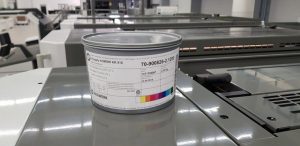
New German Packaging Law is coming
As from 1 January 2019, the new German Packaging Act (VerpackG) will replace the current German Packaging Ordinance (VerpackV).

As from 1 January 2019, the new German Packaging Act (VerpackG) will replace the current German Packaging Ordinance (VerpackV).

For long term growth, the oil industry is shifting towards petrochemicals, as vehicle efficiencies and electrification made transportation a declining market.

Mountain Dew has presented a special edition 33cl package that features fluorescent inks. The new can has been launched in the Middle East.

Danone has entered into a three-year partnership with Ecosurety to boost recycling traceability. As part of this deal, Ecosurety manage their packaging waste recycling obligations in the UK.

Ritrama has created a new revolutionary natural paper called EDEN for the labeling of wine, spirits and beer. The paper is composed of up to 50% dried grass fibers and the remainder of pure virgin cellulose fibers.

Swiggy, Zomato, Uber Eat and other food e-commerce firms are planning to deal with plastic ban imposed by the government in Tamil Nadu.

By using the How2Recyle label developed by the Sustainable Packaging Coalition, manufacturers can put a stop to consumer confusion and provide clear recycling instructions to anyone concerned with the environment.

Sanner will present its technical competencies and its broad range of high-quality active and intelligent primary packaging solutions and medtech products at Pharmapack Europe.

Maharashtra government has announced that use of plastic pouches for packaging of milk is allowed until further notice.

Komori and Siegwerk have launched their revolutionary high sensitivity K-Supply UV inks, which offers consistent color print quality, versatility, hardness and eco-friendly performance.

The European Commission has initiated the Circular Plastics Alliance of key industries to cover the full plastics value chain to reduce plastics littering, increase the share of recycled plastics and help market innovation.

Japan is committed to ensure that 100% of the PET bottles that are collected are recycled by fiscal 2030. In fiscal 2017, Japan recycled 498,000 tonnes of PET bottles.